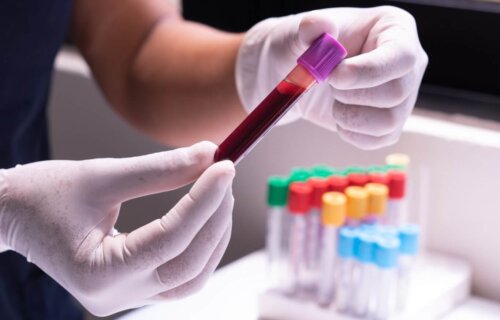DALLAS — A groundbreaking blood test might “strongly predict” the likelihood of heart or kidney disease among patients with Type 2 diabetes. Harvard University researchers identified that out of over 2,500 individuals with Type 2 diabetes and kidney disease, a significant number displayed high levels of four specific biomarkers in their blood. This finding suggests a strong predictive link between these warning signs and the future onset of heart and kidney diseases.
When participants had high concentrations of these biomarkers at the outset of the study, it reliably indicated the severity of future heart and kidney complications they would face.
Alongside this diagnostic advance, a treatment using the diabetes medication canagliflozin diminished the levels of the four biomarkers: N-terminal pro–B-type natriuretic peptide, high-sensitivity cardiac troponin T, growth differentiation factor-15, and insulin-like growth factor binding protein 7. This reduction “substantially” decreased the likelihood of patients being hospitalized due to heart failure. After a year, those taking 100mg of canagliflozin experienced only a three to 10-percent increase in their biomarker levels, in contrast to the six to 29-percent spike observed in participants taking a placebo.

“High levels of certain biomarkers are indicators of heart and kidney complications and may help predict future risk of disease progression,” says the lead author of the study, Professor James Januzzi of Harvard Medical School, in a media release. “Treatment with canagliflozin, a sodium-glucose co-transporter 2 inhibitor, lowered biomarker levels and reduced the risk of hospitalization for heart failure and other heart complications in people at the highest risk.”
For the study, researchers scrutinized the biomarker data from blood samples of 2,627 individuals, aiming to gauge the efficacy of canagliflozin. They monitored the four key biomarkers at the one-year and three-year marks. Study authors evaluated each biomarker based on its prognostic value for kidney issues and the risk of death from kidney or cardiovascular conditions. Participants were grouped into low, medium, and high-risk categories. The study underscored that individuals with higher biomarker levels — indicating a higher risk — showed a pronounced increase in progressive kidney failure and cardiovascular complications over three years.
“Future studies are needed to better understand how Type 2 diabetes in conjunction with kidney disease develops and progresses so that we may initiate life-saving therapies earlier, before symptoms of heart and kidney disease have occurred,” adds Prof. Januzzi. “Given that the American Heart Association/American College of Cardiology and the American Diabetes Association now all recommend measurement of biomarkers to enhance ability to predict risk in persons with Type 2 diabetes, these results may considerably extend the reach of biomarker-based testing, refining accuracy even further.”
The study is published in the journal Circulation.
South West News Service writer Pol Allingham contributed to this report.


Good Rx has a one month supply at $600.